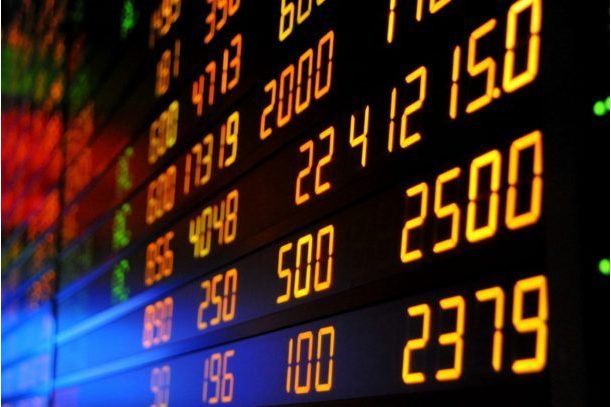Latest News
African equity markets activity declines to 10-year low

News Highlight
Africa’s major stock markets were impacted in 2019 by macroeconomic factors, including a slowdown in the global equities market and elections in Nigeria and South Africa.
A new report by PricewaterhouseCoopers (PwC) has shown that the value of African equity capital markets (ECM) in 2019 declined by 44 per cent, recording the lowest decline in over a decade. The report, African Capital Markets Watch 2019, also shows the volume of ECM activity last year was at a seven-year low, having dropped by 29 per cent, according to a statement issued on Thursday by the global professional services network.
The PwC annual report analyses equity and debt capital market transactions on the continent. PwC said Africa’s major stock markets and market segments were negatively impacted by macroeconomic factors, including a slowdown in the global stock market and the general caution exercised by investors ahead of the 2019 elections in Nigeria and South Africa.
The decline was also caused by growing political gridlock and economic stagnation in South Africa, according to the report, which puts the drop in the value and volume of the country's equity market at 69 per cent and 46 per cent, respectively, compared to 2018. In 2019, the Johannesburg Stock Exchange (JSE), the largest in Africa, did not record any initial public offering (IPO).
However, seven of the top ten IPOs between 2010-2019 were on the South African bourse, which also accounted for the two largest IPOs by value – namely, the $1.2 billion Steinhoff Africa IPO in 2017 and the $819 million Vivo Energy dual listing on the JSE and London Stock Exchange (LSE) in 2018.
Over the past ten years, PwC said there were 215 IPOs by African companies on both African and international exchanges, raising $16.9 billion. However, 2019 saw the lowest volume in IPO activity in the review period, having dropped by 47 per cent, compared to 2018. Total IPO proceeds on African exchanges over the same period stood at $15.9 billion from 202 IPOs. Sub-Saharan Africa (SSA) exchanges accounted for 133 IPOs (or 66 per cent) while the remainder was raised on the North African exchanges.
The JSE accounted for 71 per cent (or $8.7 billion) of IPO proceeds on SSA bourses in the last 10 years, while the Nigerian Stock Exchange (NSE) accounted for 13 per cent (or $1.5 billion). In terms of IPO volume, the JSE and the Botswana Stock Exchange recorded 64 IPOs and 10 IPOs, respectively. The Ghana Stock Exchange, Bourse Régionale des Valeures Mobilières (BRVM) – a regional stock exchange serving some West African countries – and the Dar es Salaam Stock Exchange each had nine IPOs. Nigeria recorded its first IPO in four years, with Airtel Africa Plc’s dual listing on the NSE and the LSE, raising $687 million.
PwC said between 2010 and 2019, there were 927 African ECM transactions, from which a total of $88 billion was raised. The highest volume of transactions was in 2015 and 2017, which saw 125 deals in each of those years. 2012 recorded the lowest volume of transactions with 65 deals over the decade.
In 2019, PwC said further offers (FOs) by listed companies declined significantly both in terms of transaction volume and value. Over the ten-year period of the report, a total of 712 FO deals were recorded by African companies both on African and international bourses, with a total of $71.1 billion raised.
PwC's Africa Capital Markets leader, Andrew Del Boccio, said the uncertainty would continue. He said, "A state of uncertainty seems to have become the ‘new normal’, and we expect some degree of volatility and caution to continue to affect Africa’s capital markets activity in 2020."
In the African debt markets, Egypt was the largest sovereign issuer of non-local currency debt in 2019, raising a total of $8.2 billion. South Africa came second with $5 billion. Based on 759 issues over the past ten years, African countries raised total debt of $245.9 billion from capital markets. PwC said almost 50 per cent of the amount raised was from the past three years alone.
South Africa's state-owned electricity utility company, Eskom, accounted for the largest non-local currency debt raised by a single issuer. The company raised $5.5 billion cumulatively over the past decade to fund its expansion programmes.
The PwC report noted the emergence of sustainable finance as new asset classes are being created to fund projects that provide not only investable returns but also reduce carbon emissions and provide social benefits. Marking the progress in this regard was Access Bank's issuance of a N15 billion green bond, considered to be the first-ever corporate green bond in Africa to be “Climate Bonds Certified.”
“Despite the lacklustre activity in 2019, we saw significant progress in various capital markets initiatives during the year, including the drive for sustainable finance through the issuance of social, green and infrastructure bonds in South Africa, Kenya, and Nigeria,” said Alice Tomdio, PwC Africa Capital Markets Director. “Together with a move towards more local currency and blended financing, we expect this trend to continue, and to unlock new sources of capital for African issuers.”
Related News
Latest Blogs
- The Museum of West African Art saga
- The complexity and complication of Nigeria’s insecurity
- Between bold is wise and wise is bold
- Prospects of port community system in Nigeria’s maritime sector
- Constitutionalism must anchor discipline in Nigerian Armed Forces
Most Popular News
- NDIC pledges support towards financial system stability
- Artificial intelligence can help to reduce youth unemployment in Africa – ...
- Africa needs €240 billion in factoring volumes for SME-led transformation
- ChatGPT is now the most-downloaded app – report
- Green economy to surpass $7 trillion in annual value by 2030 – WEF
- CBN licences 82 bureaux de change under revised guidelines






